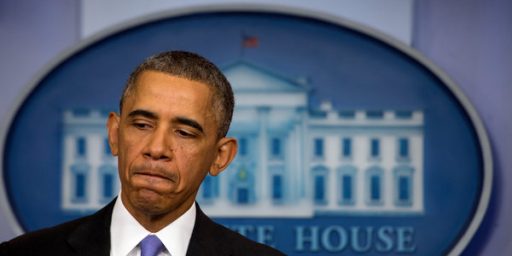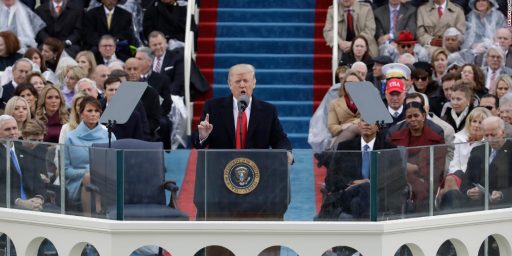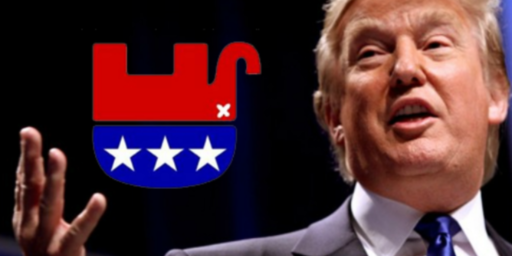SEASONS AND POLLS
Tod Lindberg cautions us not to read much into President Bush’s recent slump in the major polls:
I apologize for stating the obvious, but: It’s summer, folks. And summer has political consequences. The fact is that apart from the tiny minority of hard-core partisans and professional politics-watchers, Americans really don’t pay much attention to politics between the Fourth of July and Labor Day.
This is almost certainly true. Of course, given Newton’s laws and all that, one would think this would lead to steady poll numbers.
Lindberg explains this, albeit in a roundabout way, by saying that the Bush team is aware of this lack of attention and thus has historically taken a hands off approach to the expectations game during the summer.
Now, if one wants to tune out in this fashion, one must accept what looks to be a difficult-to-avoid consequence: a drop in presidential job-approval ratings. In 2002, Mr. Bush’s rating dropped significantly, especially in the period from late June to the end of August — in CBS News polls, from 70 percent to 61 percent. In 2003, we are also seeing an emerging decline, with Mr. Bush dropping from 68 percent to 59 percent in the ABC News/Washington Post poll. And in 2001, Mr. Bush came down as well, from 57 percent in the Gallup/USA Today/CNN poll down to 51 percent.
Now, in 2002, Mr. Bush had little trouble boosting his numbers in the fall (which in turn was important for Republicans in the November election). Conventional wisdom is that Mr. Bush was adrift in summer 2001 and that September 11 saved him. I would like to point out that that proposition hasn’t really been tested. We don’t know what Mr. Bush might have done in the absence of the September 11 attacks, and he had enjoyed approval ratings as high as 65 percent or so in April 2001.
Which, in turn, points us to another generalization. In each case, Mr. Bush’s critics, as well as some neutral observers, have pointed to the summer declines as an indication that Mr. Bush’s approval was dropping to a new, permanently lower level. In summer 2001, the drop was often attributed to a lack of administration focus after passing its big tax cut. In summer 2002, it was the supposedly mounting uncertainty about the administration’s Iraq case finally taking the post-September 11 bounce out of Mr. Bush’s numbers. In summer 2003, it’s disenchantment with Iraq and the economy all over again.
Could be. But it could also be that the White House is leaving the field for the summer. We should know about that within a couple weeks. And by mid-September, we should know if the current decline indicates a genuine decrease in confidence in Mr. Bush or if it is simply a recurring seasonal effect.
This is an interesting thesis, although I’m not sure I’m buying it. I do think it’s smart to keep one’s political powder dry for when it “matters.” And people do get bored with hearing even damaging news repeated over and again. But it strikes me as a rather dangerous strategy if it is indeed strategy. Or, should I say, strategery.





